7 AI Trends Every Developer Should Know in 2025
31 Jan 25 

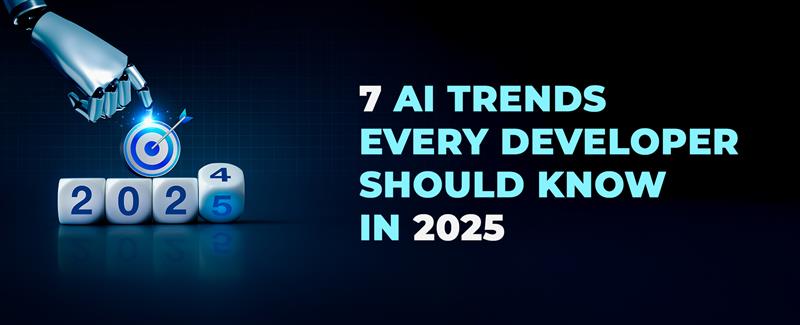
In 2024, ANZ Bank, one of Australia’s leading financial institutions, conducted an extensive study on the integration of GitHub Copilot, an AI-powered coding assistant, into their software development processes. Over a six-week period, approximately 1,000 engineers participated in the experiment to assess the tool’s impact on productivity, code quality, and security. The findings revealed a notable boost in efficiency, with developers saving up to 50% of their time on code documentation, autocompletion, and repetitive coding tasks. However, challenges remained in handling complex tasks and ensuring AI-generated code met security standards.
This real-world example highlights the transformative power of AI in software development. As AI technologies continue to evolve, developers must keep up with emerging trends to stay competitive in an AI-first world.
Let’s explore the top seven AI trends that every developer should be aware of in 2025, offering insights into how they will impact the development landscape and what steps professionals can take to leverage them effectively.
AI-Assisted Software Development
AI-powered coding assistants like GitHub Copilot and Amazon CodeWhisperer are already changing how developers write code, and by 2025, these tools will become even more advanced. AI models trained on vast code repositories will not only suggest auto-completions but also generate entire codebases, debug errors, and optimize code for performance and security.
Why It Matters:
- Increased Productivity: Developers can write code faster with AI-driven suggestions and automation.
- Code Optimization: AI can detect inefficiencies and recommend improvements, leading to better-performing applications.
- Reduced Errors: AI-powered debugging tools can identify and fix issues before they become critical.
What Developers Should Do:
- Familiarize yourself with AI-assisted development tools.
- Learn prompt engineering to get the best results from AI-generated code.
- Stay updated on AI ethics in coding to ensure responsible usage.
You may also read Role of AI and ML in Fintech Industry
Mainstream Adoption of Edge AI
Edge AI, which processes data locally on devices instead of relying on the cloud, is set to revolutionize real-time applications. From autonomous vehicles to smart home devices, Edge AI enables low-latency processing and enhanced security.
Why It Matters:
- Real-Time Processing: Critical for applications like self-driving cars, IoT devices, and real-time analytics.
- Improved Privacy: Data processing on local devices reduces exposure to cloud-based threats.
- Lower Costs: Reducing dependency on cloud services can save bandwidth and computational costs.
What Developers Should Do:
- Learn frameworks like TensorFlow Lite and OpenVINO for deploying AI models on edge devices.
- Understand hardware optimizations for AI workloads.
- Explore use cases in IoT, healthcare, and autonomous systems.
Also explore How much does it cost to develop an AI app in 2024?
Ethical and Explainable AI
With AI becoming more integral to decision-making, concerns about bias, fairness, and transparency are growing. Governments and enterprises will enforce stricter regulations requiring AI systems to be interpretable and ethically sound.
Why It Matters:
- Compliance with Regulations: Laws governing AI transparency will become stricter.
- User Trust: Applications with explainable AI gain higher user confidence.
- Reduced Bias: Ethical AI minimizes discrimination in fields like finance, healthcare, and hiring.
What Developers Should Do:
- Use AI fairness toolkits like IBM’s AI Fairness 360.
- Implement explainability techniques such as SHAP (Shapley Additive Explanations) and LIME (Local Interpretable Model-agnostic Explanations).
- Stay informed about AI governance policies and best practices.
Hyper-Personalization with AI
AI-driven personalization is moving beyond recommendations to dynamically adapting entire applications based on user behavior, context, and preferences. From personalized learning platforms to adaptive UI/UX, AI will shape digital experiences in unprecedented ways.
Why It Matters:
- Higher Engagement: Personalized experiences increase user satisfaction and retention.
- Enhanced Conversion Rates: Businesses benefit from AI-driven customization.
- Context-Aware Applications: AI can analyze real-time data to adjust user interactions dynamically.
What Developers Should Do:
- Leverage AI-powered personalization engines like Adobe Sensei and Amazon Personalize.
- Understand how reinforcement learning can improve user engagement.
- Ensure ethical data collection and compliance with privacy laws.
Learn to Build Your Own AI Model from Scratch: The Ultimate Guide
AI for Cybersecurity and Threat Detection
With increasing cyber threats, AI is playing a critical role in real-time threat detection, anomaly detection, and automated security responses. By 2025, AI-driven security solutions will be essential for protecting applications and user data.
Why It Matters:
- Faster Threat Detection: AI can identify threats in milliseconds, reducing the impact of cyberattacks.
- Automated Security Measures: AI can proactively block suspicious activities before they cause damage.
- Adaptive Security Models: AI learns from previous attacks to improve future defense mechanisms.
Explore How AI Enhances Digital Transformation?
What Developers Should Do:
- Integrate AI-based security tools like Darktrace and Microsoft Defender.
- Learn about adversarial machine learning and ways to prevent AI-driven attacks.
- Implement AI-driven anomaly detection to monitor system behavior.
Generative AI for Content and Code
Generative AI, capable of creating text, images, code, and even entire applications, is transforming development workflows. By 2025, it will be used to automate content creation, generate code snippets, and even build UI components.
Why It Matters:
- Accelerated Development: AI can generate boilerplate code and UI components.
- Creative Assistance: Developers can use AI for brainstorming and ideation.
- Automation of Routine Tasks: AI-driven automation frees up time for complex problem-solving.
What Developers Should Do:
- Experiment with generative AI tools like GPT-4, MidJourney, and Stable Diffusion.
- Use AI to assist in UI/UX design and front-end development.
- Balance AI-generated content with human creativity for quality assurance.
Decision Intelligence and AI-Driven Analytics
Decision intelligence is the next step in AI-driven analytics, moving beyond traditional data processing to providing actionable insights and recommendations. This approach is becoming essential for businesses and developers alike.
Why It Matters:
- Actionable Insights: AI can suggest optimal decisions based on data trends.
- Predictive Analytics: AI-driven forecasts enhance business strategy.
- Smarter Automation: Decision intelligence enables AI-driven workflow automation.
What Developers Should Do:
- Learn decision intelligence platforms like Google’s Vertex AI and IBM Watson.
- Incorporate predictive analytics in business intelligence applications.
- Explore AI-driven automation for operational efficiency.
Final Thoughts
AI is changing the way we build, improve, and secure apps. It’s not just about making things faster but about creating smarter, safer, and more personalized experiences for users. The impact is already being felt in industries like banking and transportation, and it’s only going to grow.
At Mindster, we focus on using AI in practical ways that really make a difference. We don’t just follow the latest trends—we use AI to make apps more efficient, secure, and tailored to users’ needs. Our experienced team can help integrate AI into your app to keep it ahead of the curve.
As AI continues to shape the future of app development, partnering with Mindster means your app will be ready for what’s next. Let’s work together to create smarter, more innovative solutions.
- Agentic AI1
- Android Development3
- Artificial Intelligence38
- Autopay1
- Classified App3
- Custom App Development5
- Digital Transformation12
- Doctor Appointment Booking App14
- Dropshipping1
- Ecommerce Apps40
- Education Apps2
- Fintech-Apps38
- Fitness App4
- Flutter4
- Flutter Apps20
- Food Delivery App5
- Grocery App Development1
- Grocery Apps3
- Health Care10
- IoT2
- Loyalty Programs11
- Matrimony Apps1
- Microsoft1
- Mobile App Maintenance2
- Mobile Apps132
- On Demand Marketplace1
- Product Engineering6
- Progressive Web Apps1
- React Native Apps2
- Saas Application2
- Shopify9
- Software Development3
- Taxi Booking Apps7
- Truck Booking App5
- UI UX Design8
- Uncategorized7
- Web App Development1









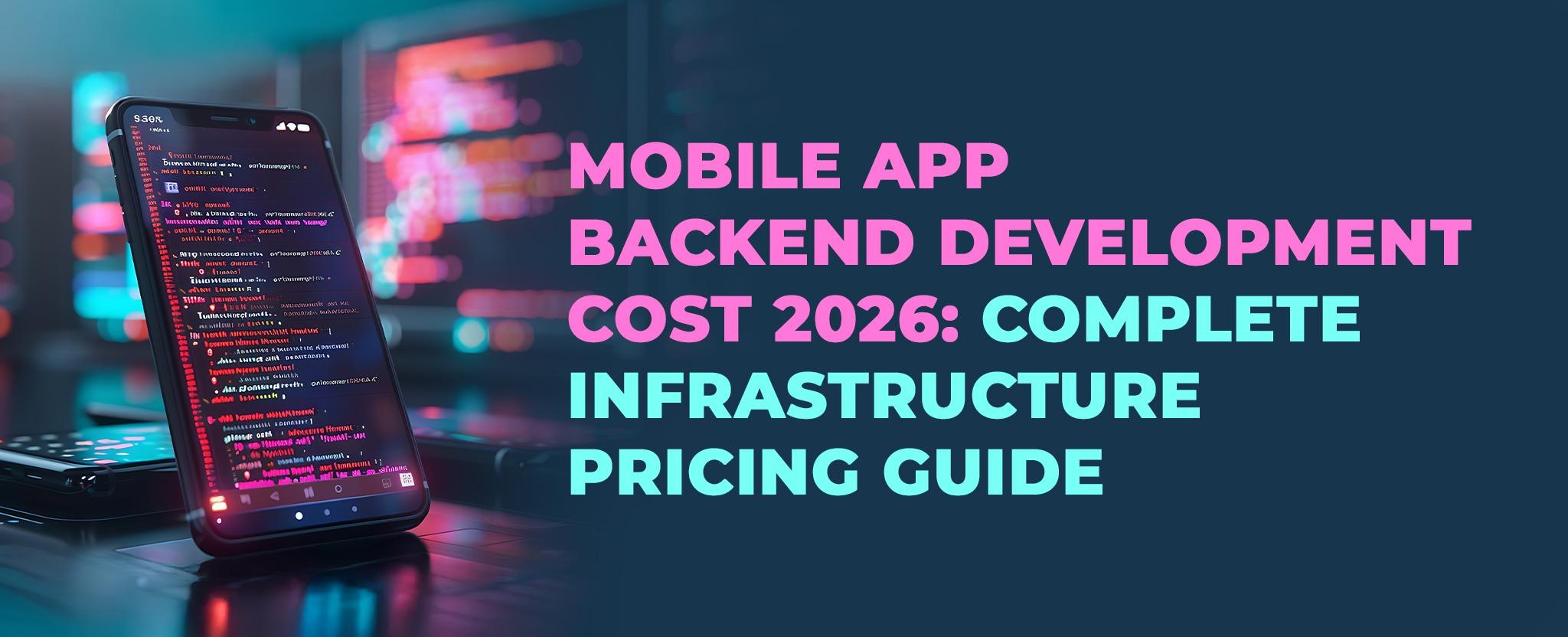
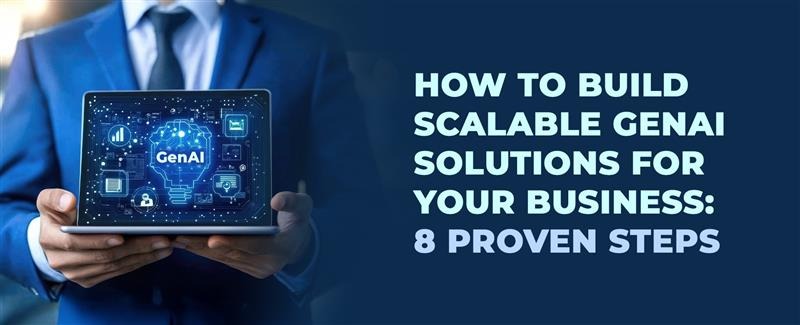
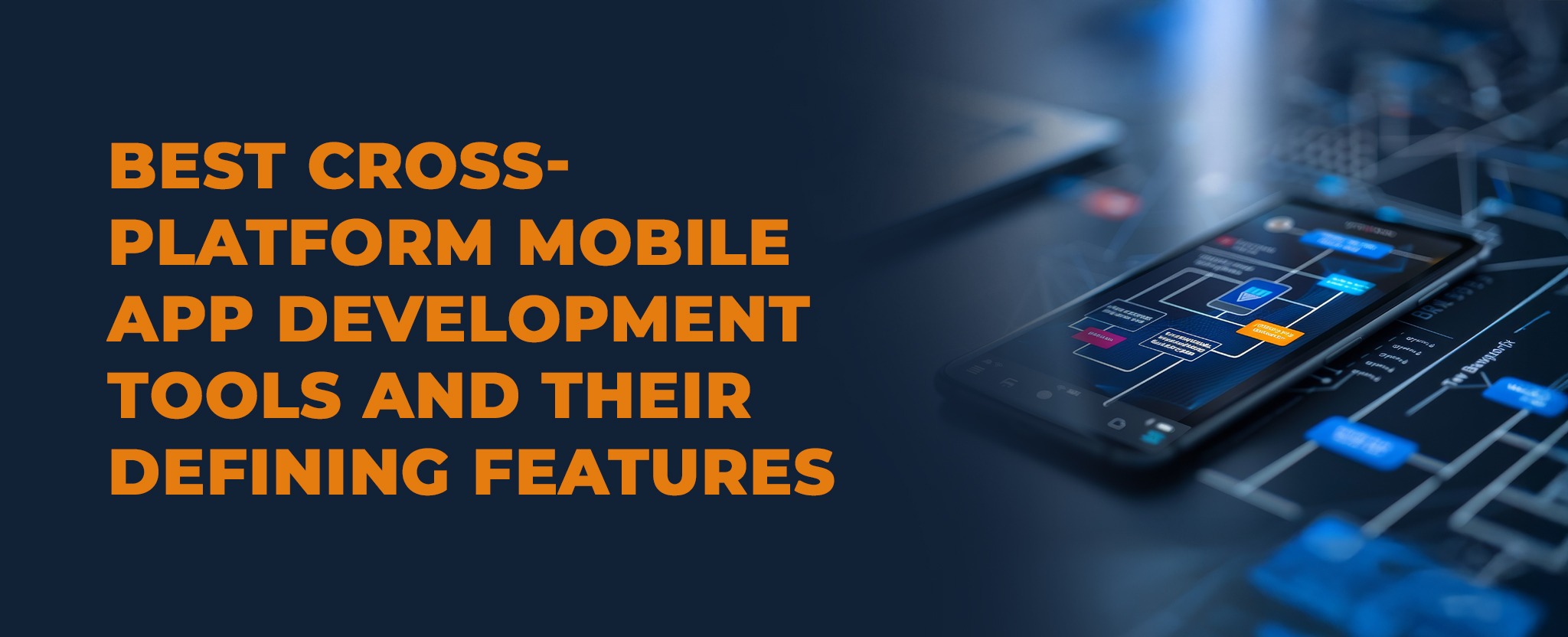
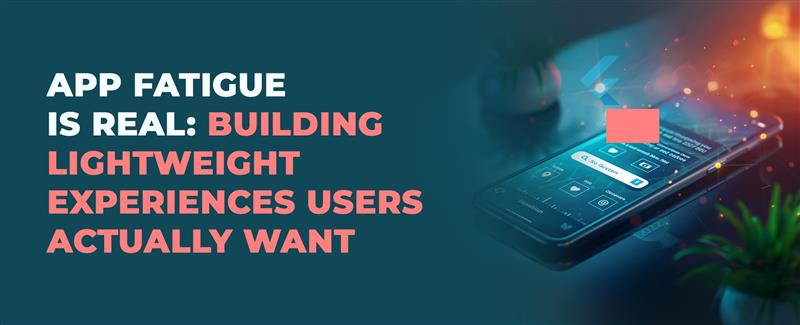






Comments